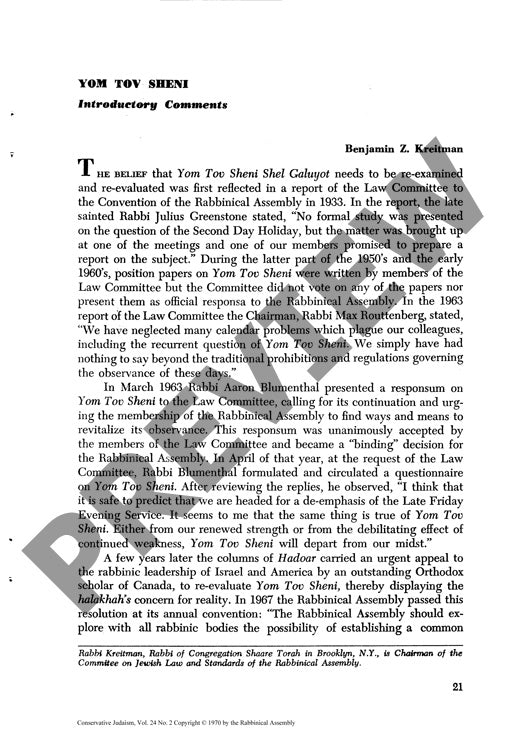Yom Tov Sheni Introductory Comments
Couldn't load pickup availability
A landmark shift in Conservative Judaism's approach to Yom Tov Sheni Shel Galuyot (Second Festival Days of the Diaspora) emerged between 1933 and 1969, transforming from unanimous support to pluralistic acceptance of multiple observance positions. Through analysis of Rabbinical Assembly Law Committee documents—including responsa, position papers, questionnaire responses, and voting records—a clear progression emerges in institutional thinking about second-day festival observance. The watershed moment came in 1967 when, despite Rabbi Aaron Blumenthal's 1963 responsum unanimously favoring continuation of the practice, the Rabbinical Assembly called for its comprehensive reconsideration. By 1969, the Law Committee embraced divergent positions simultaneously: Rabbis Philip Sigal and Ehrlich's responsum made second-day observance optional under local rabbinic authority (mara d'atra), while Rabbi Wilfred Shuchat's traditionalist stance maintained its obligatory nature. This evolution reflected Conservative Judaism's broader institutional adaptability to modern circumstances while preserving space for the practice's historical, religious, and sentimental value among adherents.

More Information
-
Physical Description
-
Publication Information
Published 1970
ISBN
-
Publication Credits
Benjamin Kreitman

